Liberia’s law reform in 2014 saw the government focus on criminalising all forms of cannabis use, including small amounts for personal consumption only. This raises human rights concerns, especially as individuals can be imprisoned just for smoking it. Likewise, it’s illegal to grow, though many farmers risk it anyway in a bid to support their families.
- Capital
- Monrovia
- Population
- 5,770,000
- CBD Products
- Illegal
- Recreational cannabis
- Illegal
- Medicinal cannabis
- Illegal
- Cannabis laws in Liberia
- Can you possess and use cannabis in Liberia?
- Can you sell cannabis in Liberia?
- Can you grow cannabis in Liberia?
- Is CBD legal in Liberia?
- Can cannabis seeds be sent to Liberia?
- Medicinal cannabis in Liberia
- Industrial hemp in Liberia
- Good to know
- Cannabis history
- Attitudes towards cannabis
- Will it be legalised in the future?
Cannabis laws in Liberia
Can you possess and use cannabis in Liberia?
It’s illegal to either possess or use cannabis in Liberia. In 2014, the government introduced the Controlled Drug and Substances Act, in a bid to address drug usage and distribution across the country. This law states that those who are caught using ‘Schedule 1’ drugs (such as cannabis, cocaine or heroin) will receive a maximum sentence of one year in prison, and/or a $1,000 fine.
Aggravating circumstances may increase the penalties. For example, if the offender is caught using cannabis in an educational or social service institution, or a prison, or if he is using it near places where school children are educated, play sport or enjoy social activities, then he could receive as much as an extra 20 years on his prison sentence.
Although these penalties are harsh, the law does offer treatment and rehabilitation as an alternative to imprisonment to be decided at the judge’s discretion.
Anthony K Souh, director of the Drug Enforcement Agency, commented: “Now Liberia has won for itself the long-awaiting authority (…) to join the international community in fighting dangerous substances that have the potential to undermine national peace and security.”
However, the US has spoken out against the law reforms, stating that the laws criminalise all forms of drug activity, penalising not just serious offenders, but also those who only use small quantities of cannabis. The US also emphasises the need for Liberia to avoid human rights violations when tackling drug-related crimes.
Cannabis use is relatively widespread across the nation, along with other more dangerous illicit drugs, like cocaine and heroin. On World Drug Day, Dr Jenkins Jorgbor highlighted how the use of drugs was linked to the country’s 14 years of war and the lack of employment opportunities for adults.
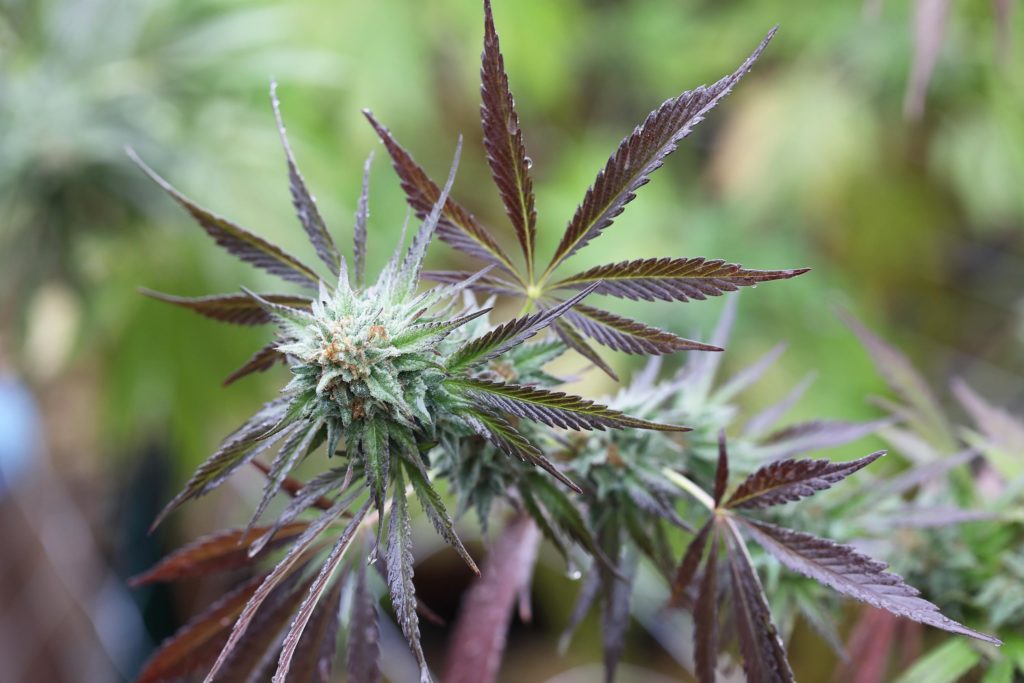
Can you sell cannabis in Liberia?
It’s also illegal to sell or distribute cannabis in Liberia. The law doesn’t identify threshold amounts for possession with intent to sell, which means that, in theory, someone caught with only a small quantity of cannabis could be sentenced as harshly as someone with a far greater amount.
Additionally, the country has a drug smuggling issue, which the country’s authorities are taking steps to address. Although available statistics relating to drug smuggling in West Africa are limited, it’s believed that Liberia is a ‘transit’ country in that it lies on a significant drug trafficking route. There’s evidence to suggest that smuggling is on the rise too, which is likely to present further problems for Liberia’s authorities.
Since corruption is also rife among the government, shutting down the illegal trade of drugs is even harder. For example, in 2015, Fombah Teh Sirleaf, the stepson of Liberia’s president, was arrested for accepting bribes in exchange for letting drug traffickers operate in the country.
Can you grow cannabis in Liberia?
Cannabis cultivation is forbidden in Liberia. However, due to underfunded law enforcement and corruption, the plant is grown widely across the country.
Farmers are turning to cannabis to provide for their families. Nathaniel Cico is one such example. “I grow marijuana,” he explains to VOA News. “There are no jobs in the country. Things are very tough. How do people expect us to survive?”
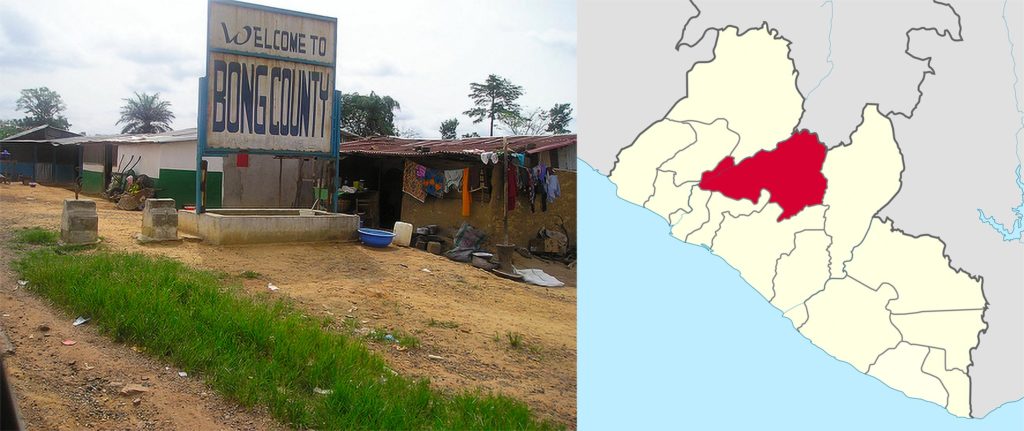
Liberia’s ideal growing conditions for cannabis could easily explain why the plant is grown in all of its 15 counties. The heart of the cultivation industry (rather ironically) is Bong County, where farmers are shunning traditional crops such as rice and cassava, in favour of high-value, fast-growing cannabis.
Is CBD legal in Liberia?
The law doesn’t differentiate between CBD and cannabis. This means that, despite only having low levels of THC (the substance responsible for the ‘high’), CBD is illegal to use, purchase and sell in Liberia.
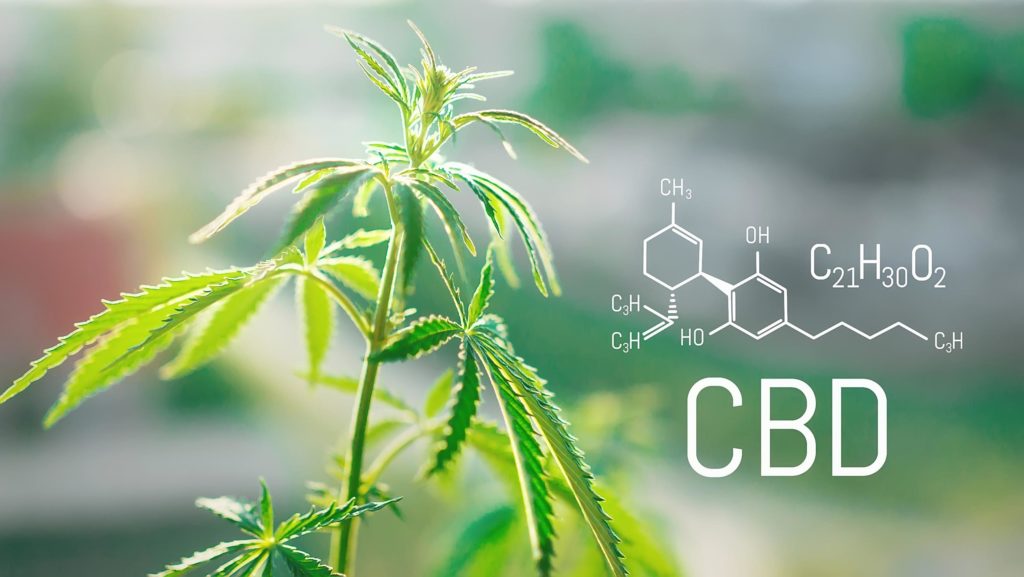
Can cannabis seeds be sent to Liberia?
Likewise, cannabis seeds are not regarded as any different from any other part of the plant. A such, they cannot be purchased, sold or used, and may not be mailed into the country via the post.
Medicinal cannabis in Liberia
There is no medicinal cannabis programme in place in Liberia. Nor have the government made any indication that the law will change any time soon. However, media reports suggest that overseas companies are considering Liberia as a location to create their pharmaceutical cannabis plants – thanks largely to the country’s excellent climate and soil conditions. Liberia’s consular office in New York also hinted that some US enterprises might be capitalising on the country’s cannabis-growing potential.
Industrial hemp in Liberia
At present, hemp is not differentiated from cannabis. This means it’s illegal to grow it despite the fact that it offers economic benefits for the country. However, given that the ‘green rush’ has seen countries across the world legalise hemp cultivation for profit, it’s possible that Liberia may follow suit in the future.
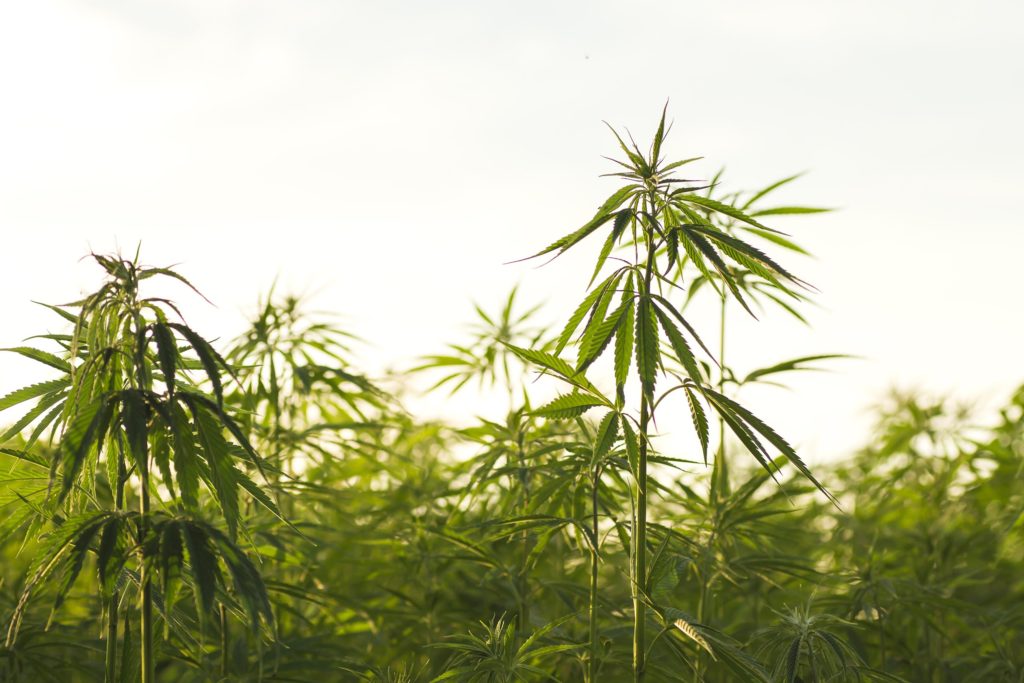
Good to know
If you are travelling to Liberia (or currently live there), you may be interested to know the following:
- Cannabis is the most commonly used drug in Liberia.
- Cannabis usage is common among adolescents too, with around 9% having used it in the past.
- Rates of drug abuse increased significantly in the 1980s. This is usually attributed to the country’s political turmoil at the time.
Cannabis history
No one is quite sure when cannabis first entered West Africa. It’s believed that the region was introduced to the plant significantly later than the rest of the continent, and there’s no conclusive proof to suggest that it was there at all before the Second World War. This is largely guesswork, however, based on the fact that there were no indigenous words for cannabis in Liberia or other West African countries.
After World War II, use of the drug became prevalent in the country. Ex-servicemen returned from their posts in North Africa and Asia, and brought cannabis with them. To begin with, only ex-servicemen and workers who used it but by the 1960s and 1970s, its popularity began to spread into other demographics too.
Dwindling cocoa prices in the 1950s meant that Liberian farmers were forced to seek other means of income. Cannabis was an obvious choice, as it’s easy to grow and produces high yields. West Africa’s economic decline in the 1970s led to intensified cultivation efforts.
The civil war (1989 to 2003) had considerable impact on the cannabis trade. It was used to fund various warlords operating in the country, who also reportedly gave the drug to their soldiers (some of them children) to reduce stress and create dependency.
After the war ended, millions were left without jobs or income. Several ex-soldiers were also addicted to cannabis, which prompted further growth in the domestic market.
In a bid to address this issue, the number of seizures increased. In 2007, over 20,000 kilograms was reportedly seized by DEA officials. The previous year, just 205 kilograms were seized. The sudden increase was largely due to increased international cooperation, and additional funding.
The eradication of plantations also became more commonplace. In 2008, UN Mission in Liberia (UNMIL), together with a Bangladeshi battalion and a Nigerian police unit, eradicated several plantations in Bong and Nimba County. This single campaign resulted in almost 1,000 kilograms of cannabis being seized, and over 400,000 plants being destroyed.
Understandably, this has led to conflict between the cannabis farmers and the police. Although violence is relatively rare, it has occurred in the past. For example, in 2011, a group of cannabis farmers restrained and flogged a DEA commander after he attempted to arrest them. DEA chief James Jelah also reported that farmers set up blockades to prevent access to their farms, and attacked agents with weapons.
Attitudes towards cannabis
Cannabis is widely used in Liberia, and despite the authorities’ recent efforts to reduce its sale and purchase, it’s still relatively easy to obtain.
However, the media (driven by the country’s government) portrays cannabis as a dangerous illicit drug. While it’s true that the current trend for relying so heavily on one crop is risky – not least because it reduces supplies of other necessary crops – it doesn’t make sense to eradicate cannabis plantations. This would only impoverish farmers even more without addressing the heart of the issue.
Will it be legalised in the future?
Given the fairly recent changes in Liberia’s law, it seems unlikely that recreational use will be made legal any time soon. Likewise, there has been no mention of introducing a medicinal cannabis programme, though it seems probable that overseas companies will start using Liberia’s land to create large-scale plantations.
Perhaps, once the country’s government see the profit-making potential of the industry (both cannabis and hemp), they may consider legalising their cultivation, under regulated, controlled circumstances. However, as it stands at present, the main people profiteering from cannabis are those operating on the black market.
- Disclaimer:While every effort has been made to ensure the accuracy of this article, it is not intended to provide legal advice, as individual situations will differ and should be discussed with an expert and/or lawyer.






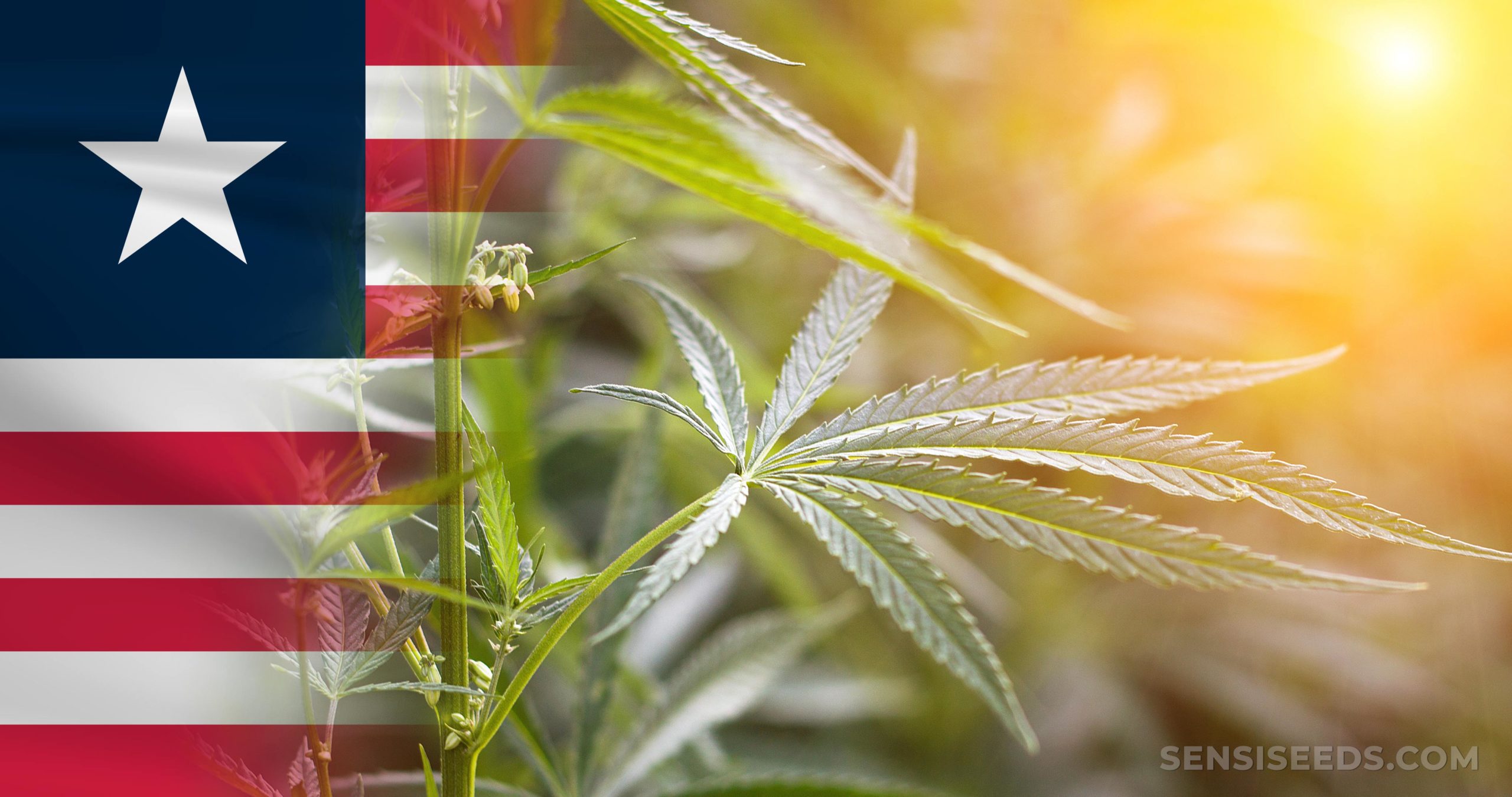
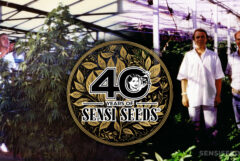
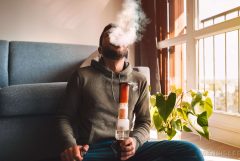


As someone who owns 875 acres of land in Liberia, it’s extremely frustrating. We have been fighting to even legalize Hemp, but Liberia has such a strong religious background and following whom have such an influence on the government, it prevents a lot of progress for the country.
I agree as I am also a Liberian living abroad with access to 2 farms near the capital. I also am a cultivator of cannabis and would love the opportunity to work with those who wish to explore the possibilities that could sprout from that fertile land.
This seems to focus on marijuana and not hemp as an industrial crop.
Are they both considered the same in Liberia?
Hemp farming and production for building, clothing/fabric, etc. would be a huge boost to the economy and create jobs, etc.
Hi Mike,
Both this article and Cannabis in Liberia part 1 do focus on cannabis rather than industrial hemp, as our ‘Cannabis In…’ series does not cover hemp in the different countries that we have reported on. It would be great to see hemp farming all over the world, as it would indeed make a huge difference to the standard of living in many places!
I hope you continue to enjoy the blog,
with best wishes,
Scarlet
Very thorough article, Seshata. It’s not often that cannabis-related news comes out of Africa, so this is not only interesting, but fresh too. Unfortunately, it’s also sad. The fact that there is violence anywhere in the world over something like cannabis is just so backwards that I still have difficulty wrapping my head around it. This leads people to the idea that marijuana causes violence, which is simply stupid although the prohibitionists still use this as one of their primary defenses. Don’t get me wrong – there will be some deaths as a result of marijuana legalization, but it’s probably not anything like you’re thinking. Ultimately Liberia has a long way to go, and things probably won’t change much because of two simple reasons:
1.) The poor in Liberia have no other way to survive and need the money that cannabis brings
2.) The government in Liberia has no other way to survive and needs the money that persecution of cannabis brings
It’s a confounding conundrum.
Peace
-Russ